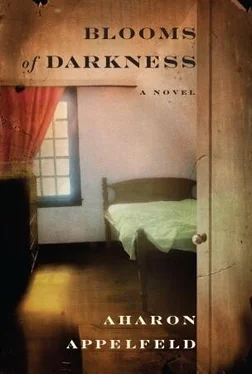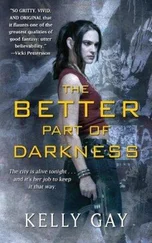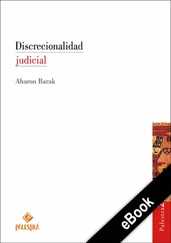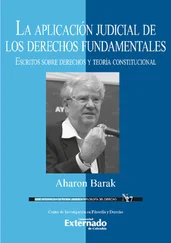The potatoes and cheese are tasty. Mariana melts some snow in a pot and prepares tea. The tea and the chocolate-covered wafers remind Hugo of the trips his family would take when the season changed from winter to spring. His mother loved the white snow flowers that would peek out of the earth that was suddenly laid bare, black and moist.
The vision of those distant and forgotten mountains dazzles Hugo, and he closes his eyes. Now he clearly sees his mother kneeling, looking with wonder at the white flowers, and his father, seeing her wonderment, kneeling as well. For a moment they marvel together without speaking.
This vision, buried within him, breaks through and appears before his eyes, stunning him. Tears catch him unawares and flood his face.
“What’s the matter with you?” says Mariana. “A big fellow like you doesn’t cry anymore.”
“I remembered my parents.”
“You mustn’t cry. We’re setting out on a long and dangerous journey. Who will watch over Mariana? A spoiled fellow cries, but a strong and brave lad mustn’t cry. We’ll have to climb mountains, cross rivers, and get our bread from the earth. A strong boy knows how to suffer and never cries.” Her voice is determined, and Hugo feels that he has made a mistake, that he must overcome his weakness.
“I’m sorry,” he says, and wipes his eyes.
“Crying is hard to forgive. All those years I wanted to cry, but I restrained myself. A person who cries announces to the world that he’s lost and needs pity. A person who asks for pity is a sad sack. You can be anything, but not a sad sack. Do you understand?”
“I understand,” Hugo says, and without doubt he does understand.
“From now on not even a single tear.”
“I promise.”
For quite a while they sit and drink tea. Mariana’s face doesn’t soften. She sinks deep into thought, and her eyes express dour seriousness. In his heart he knows that if he asks her pardon now, she won’t be forgiving. He must wait and, when the time comes, prove to her that he’s brave, that emotions and weakness have no control over him.
“I’ve been thinking about you,” Mariana says, rousing him from his thoughts. “You’ve changed and matured, but you still have quite a way to go. Jews spoil their children, and they don’t prepare them properly for life. A Ukrainian child works in the field, and if they hit him, he doesn’t cry. He knows that life isn’t a plate of strawberries.”
Then she takes a few swigs from her bottle and stops punishing him. Hugo gathers some twigs and brings the bonfire back to life. “Come to me, baby, and I’ll give you a kiss. It’s good that you’re with me. It’s hard to be alone. Bad thoughts strangle you.”
“Should I melt more snow?”
“There’s no need. We’ve drunk enough. What time is it?”
“Three o’clock.”
“In a little while we’ll have to set out. We can’t sleep outdoors. Let’s hope that God sends us decent people,” she says, and puts the bottle in the fire. Strangely, that motion, which had nothing superfluous about it, implants itself in Hugo’s memory with great clarity. In time he will wonder: When did the tears freeze in me?
The sun sinks toward the horizon, glowing like a red-hot iron. Mariana doesn’t stop marveling at the splendid sight. “If there is beauty like that, it’s a sign that God is in heaven. Only God can create colors like that. My grandma used to say, ‘God created goodness and beauty, and people only spoil what God created.’ ”
They walk on, toward houses that are scattered along the road. Mariana keeps thinking out loud. “I’m amazed at the Jews. An intelligent people, everybody agrees, yet most of them don’t believe in God. How many times did I ask your mother, ‘How is it that you don’t believe in God? After all, you see His deeds every day, every hour.’ ”
“And how did she answer you?” Hugo dares to ask.
“To her credit it must be said that she didn’t talk cleverly and say things beyond what my mind could grasp. She simply said, ‘I lost my faith while at gymnasium, and since then it hasn’t returned to me.’ I’m sorry for your mother and for your uncle Sigmund, who lost their faith in God. I liked to laugh with Sigmund, laugh with my whole heart. I thought that if we married, I could lift myself and him up from drunkenness. But every time we would talk about a wedding, he would make a dismissive gesture with his right hand, as if to say, I’ve already tried that. There’s no point to it .
“At first I thought that he didn’t want to marry me because I’m a simple woman. Later I understood that he was a lost person. I was willing to marry him as he was, to cook his meals and wash his clothes, but then the hard days came, the persecution and the ghetto, and he told me something I’ll never forget: ‘I can’t be saved any longer. Save yourself. The Jews have been condemned to death. You’re still young.’ Every time I remember that, I choke with pain. What a marvelous man, what a great soul.”
Then Mariana falls silent and walks with her head bowed, sunk within herself. Hugo doesn’t disturb her. When Mariana is silent, she’s gathering her thoughts in order to reveal them to him later. When she’s thinking, she’s connected to other worlds. Sometimes she reveals a bit to him. Once she said, “Don’t forget, there’s an upper world and a lower world. We’re mired in the lower world. If we’re good, God will save us and take us to Him up above. I have no patience for all the little acts of deceit that we have to experience here. I want Him to redeem me now. He knows how much I’ve suffered here. I’m sure He will take that into account when He comes to judge me. I’m not afraid. Whatever He does, I’ll accept with love. I feel great closeness to Him and to His holy son.”
Suddenly a man comes out of one of the houses and strides toward them. Mariana is frightened and says, “Let’s step aside.”
Hugo has noticed that people who appeared suddenly frightened her. There were people she recognized from a distance and avoided. It’s strange how many people she knows. Once she said, “I know that bastard, and also his brother, and also his cousin. I wish I didn’t know them. Every time I remember them, my body weeps. Good God, what have I done to my miserable body? I’m a criminal.”
Two days before they set out, Hugo heard Mariana say to her friends in The Residence, “There’s no sense in running away. They’ll identify us easily. If the father doesn’t, the son will.” Everybody laughed. Then he heard one of the women say, “Whores and Jews are always persecuted. There’s nothing to be done.”
Night falls, and Mariana decides to knock on the door of a meager hut. An old woman opens the door and asks, “Who are you?”
“My name is Maria. This is my son, Janek. Our house is close to the front, and we’re looking for a place to spend tonight.”
“What will you give me in return?”
“A bottle of good drink. That’s what I have.”
“Come in. I don’t want to waste the heat.”
The hut is tidy and clean. The smell of starch fills the two rooms. “Sit down,” says the old woman, and she serves them hot herbal tea. Mariana tells her that they have been on the road for days because the front is getting close to their house.
“The Russians are coming back?”
“They’re coming back.”
“Woe is me for those who were here and woe is me for those who are coming. The first are murderers, the second are heretics. God is sending us difficult trials.”
Mariana takes an ornate bottle of liqueur out of the suitcase and hands it to the old woman. The old woman grabs it and says, “A pretty bottle. Let’s hope the drink inside is worthy of the vessel that preserves it. In our times, everything is deception.”
Читать дальше












